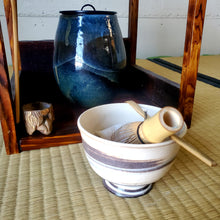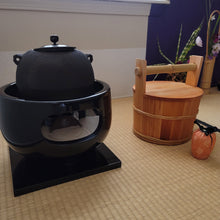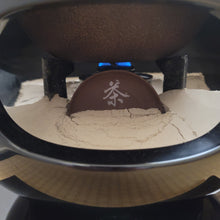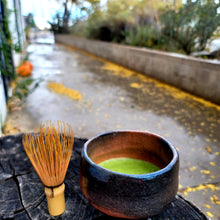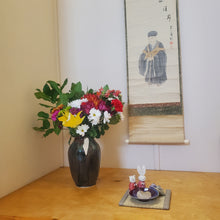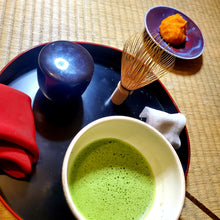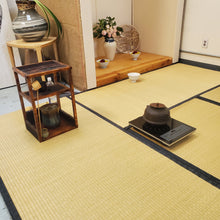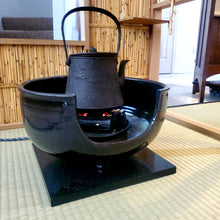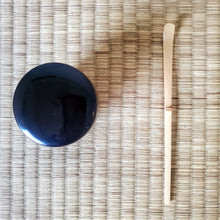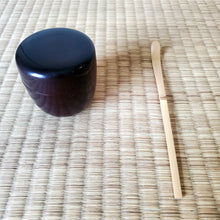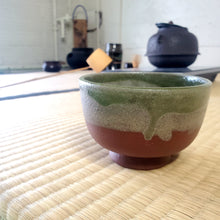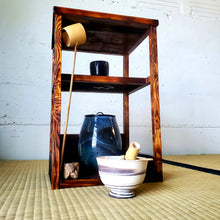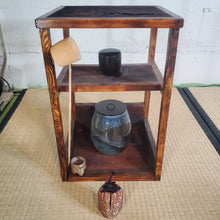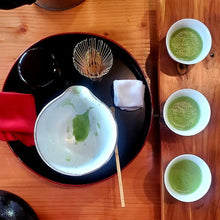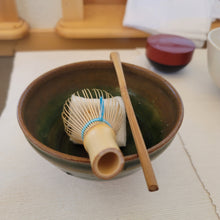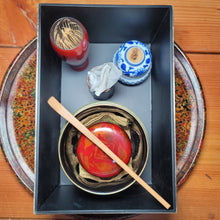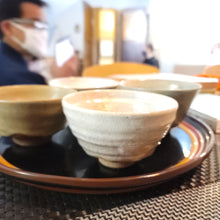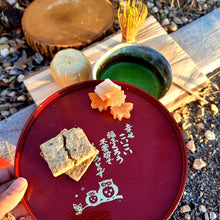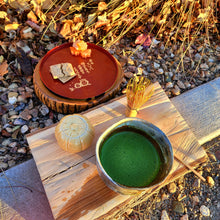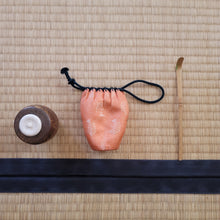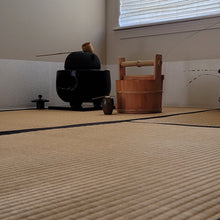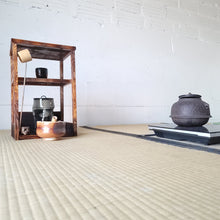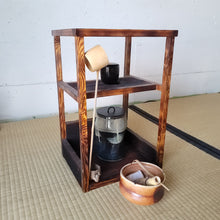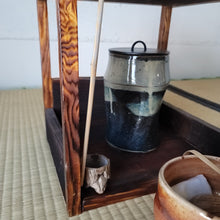
Join us for Tea, in the style of a Traditional Japanese Tea Ceremony.
Friday's at 5pm.

Known as The martial art of hospitality, the Japanese Tea Ceremony is a great mindfulness practice; akin to Tai Chi, Yoga, Aikido, or other types of moving meditation.
You get to enjoy Authentic Japanese Matcha and Tea sweet, as a Guest On Tamai Matts.
Each session lasts approximately 2 hours and can accommodate 3 persons.

Please Note:
- The tea tasting takes place on our second level up a flight of stairs. Please be able to use stairs comfortably if you are booking a tasting.
- You will have to remove your shoes to enter the tea space upstairs. Please come with clean socks, as bare feet are not allowed.
- Please, let us know if you have any dietary restrictions or allergies.
We can arrange a special tasting downstairs or different hours, if needed. Please, feel free to message us with any questions.

"The fifteenth century saw Japan ennoble it into a religion of aestheticism-- Teaism.
Teaism is a cult founded on the adoration of the beautiful among the sordid facts of everyday existence. It inculcates purity and harmony, the mystery of mutual charity, the romanticism of the social order. It is essentially a worship of the Imperfect, as it is a tender attempt to accomplish something possible in this impossible thing we know as life.
The Philosophy of Tea is not mere aestheticism in the ordinary acceptance of the term, for it express conjointly with ethics and religion our whole point of view about man and nature. It is hygiene, for it enforces cleanliness; it is economics, for it shows comfort in simplicity rather than in the complex and costly; it is moral geometry, inasmuch as it defines out sense of proportion to the the universe. It represents the true spirit of Eastern democracy by making all its votaries aristocrats in taste."
The Above Excerpt is from "The Book of Tea" by Kakuzo Okakura.

Chadō (茶道) The Japanese word, “Chado”, literally means 'the way of tea,' and is commonly used in English to refer to traditional Japanese tea ceremony.
茶 = Cha, meaning Tea
道 = dō, Literally means "Way". The dō of chadō, refers to the spiritual discipline that is an integral part of the practice.
Much like the word dōjō (道場), literally means "place of the Way" in Japanese. Dōjō is a hall or place for immersive learning or meditation. Traditionally used in martial arts, but also in other fields, such as meditation, software development, and Tea! The term literally means "place of the Way" in Japanese.
But, Tea can also be just a fun tea time with those we love, New and Old!
The Following is an Excerpt from the
Urasenke Chadō Textbook
Supervising Editors: Genshitsu Sen and Sōshitsu Sen
From the chapter entitled:
"The Significance of Chadō"
Ii Naosuke, An elder adviser in the government in the last days of the Tokugawa shogunate, was also a zealous practitioner of chanoyu...
He stressed the relationship of people gathered together for chanoyu as a once-in-a-lifetime occurrence, which he describes as "ichigo ichie" the host and the guests realize that, no matter how many times they may meet for chanoyu, that day's meeting will never be repeated exactly in the same way, so it is indeed a once in a lifetime encounter.
Thus, the host takes great care and entertaining the guests and strives to make the perfect gathering.
The guests, for their part, recognize that the meeting will never happen again and thus appreciate every attention of the host to entertainment. In this manner, chanoyu is based on the idea of "ichigo ichie", which means to cherish each moment.
...[C]hado helps us refine our sensibility to beauty... In the ensemble of implements the host has brought together, the guests have a chance to see and handle many fine objects, and experience that helps them cultivate their sensitivity to the value and beauty of traditional works of arts and craft...
... The attraction of tea is that it is healthy for both body and soul,... written long ago by the Zen master Eisai Zenji, states, " Tea is an elixir that nourishes one's life, and offers a sublime path ensuring longevity." Eisai Also describes the many medicinal effects of tea. In those days, Tea was not recommended so much as a healthful beverage but, rather, for its efficacy as a medicine. In the Muromachi period, "chanoyu" ( Literally, "hot water for tea") The came parts of high culture, and it attained the important role it continues to hold today as an effective medium for human communication.
...[C]hado is based on the idea of respect for others and, with others, realizing the spirit of ichiza konryu, Or the spirit of mutual cooperation and the infinity of people in creating a unified hole when they are gathered together. This idea nurtures the cherishing of peace and of mutual respect.. The practice of chado is based on the philosophy of peaceful coexistence.
... Finally, it is important to identify the essential intention of chado, which lies in the matter of how we should live our lives as human beings. Of primary importance in chado is that, You diligently reflect on yourself and cultivate your mind and heart through your practice day-to-day.
























